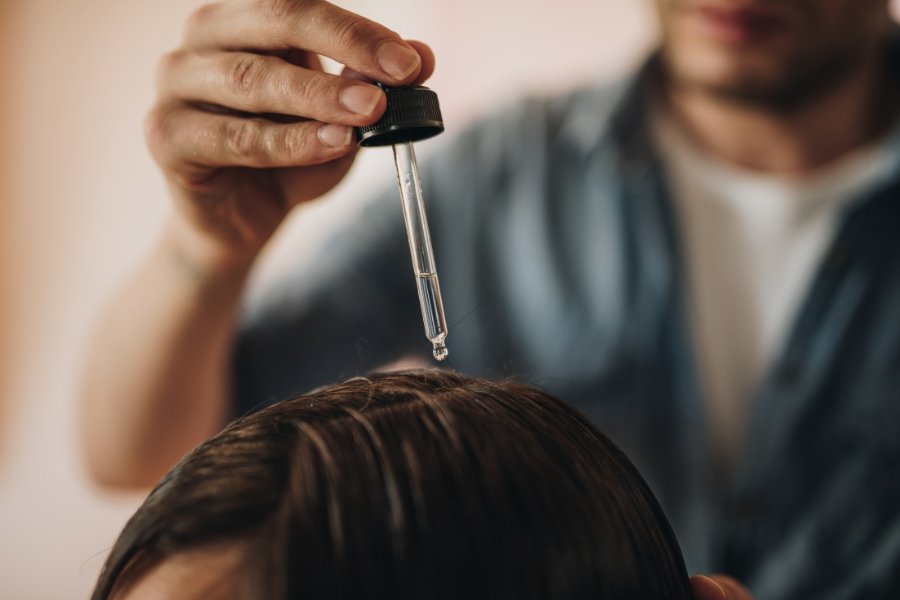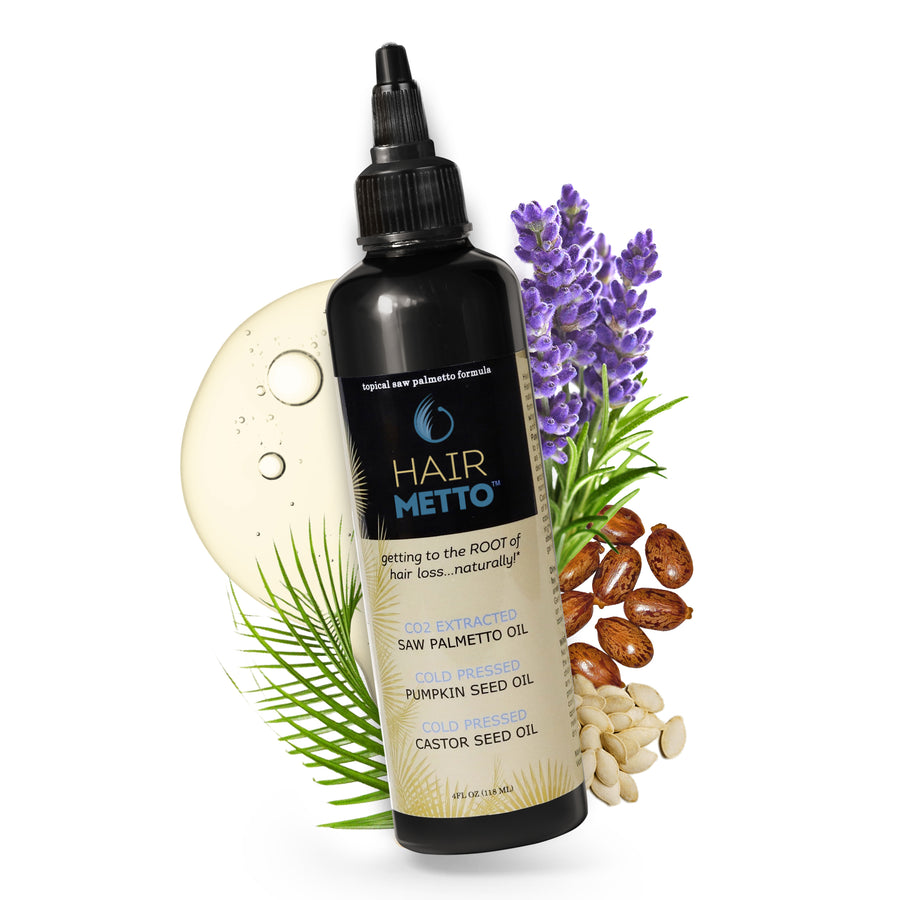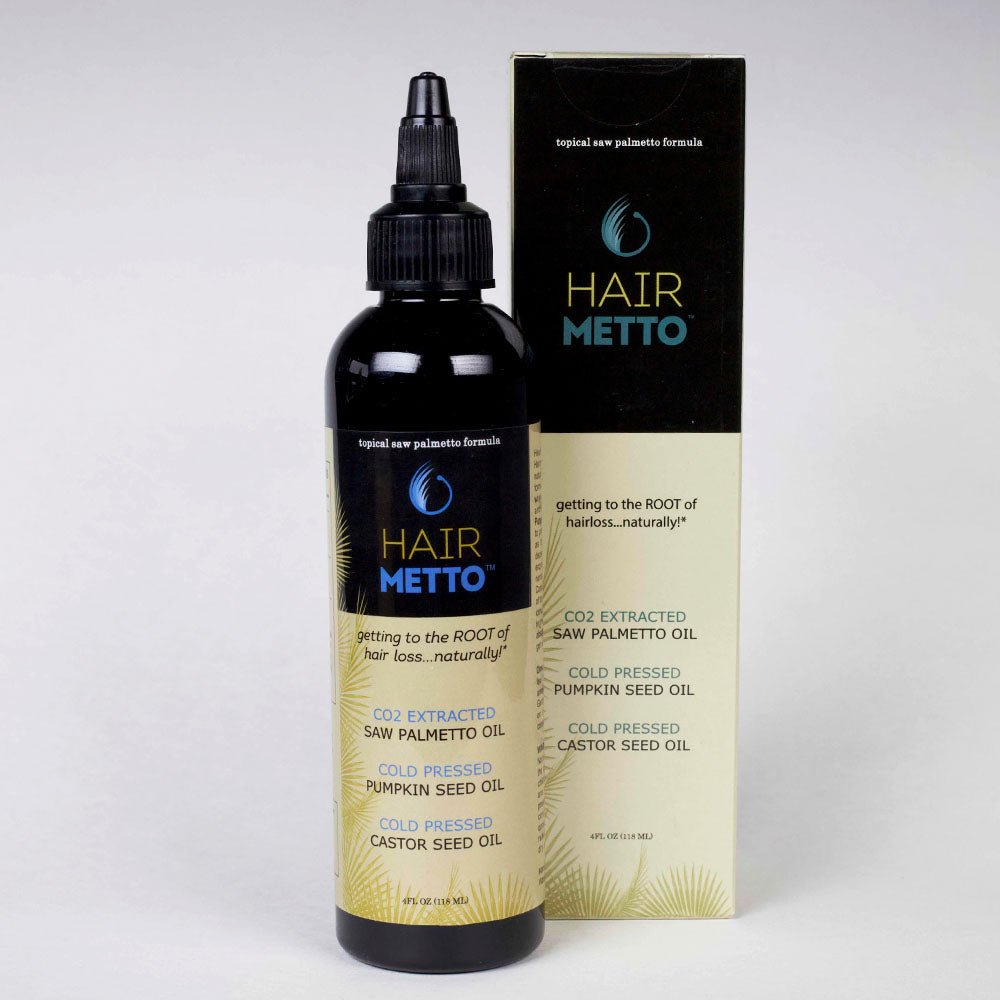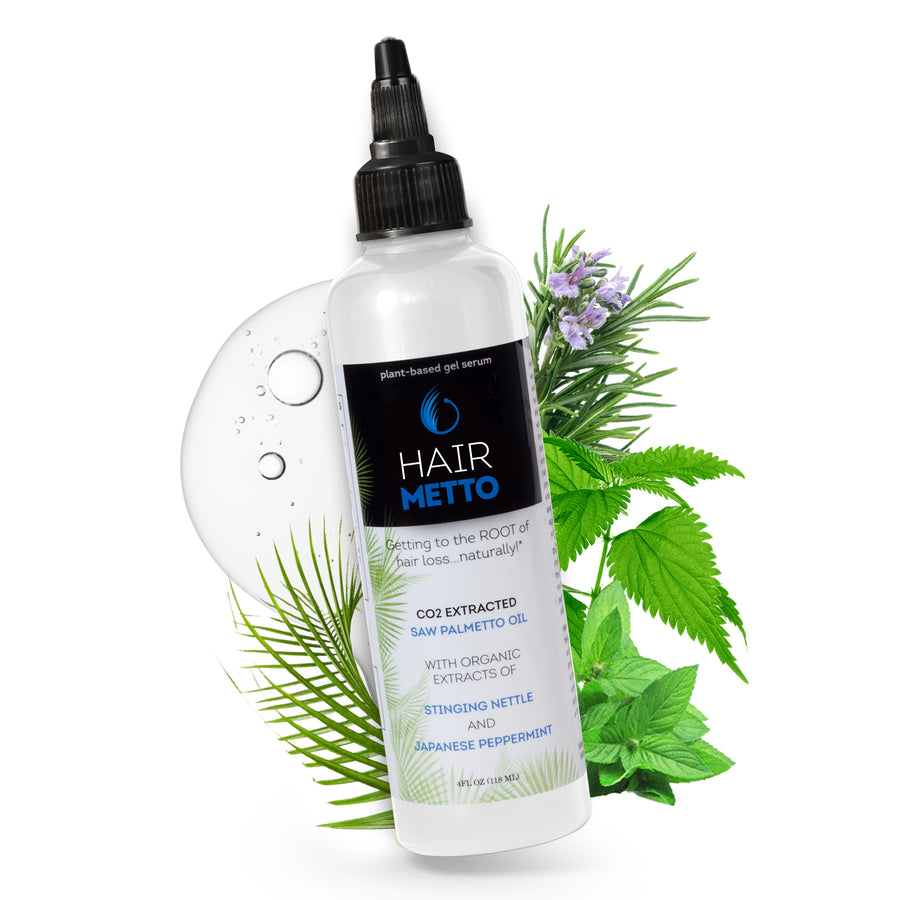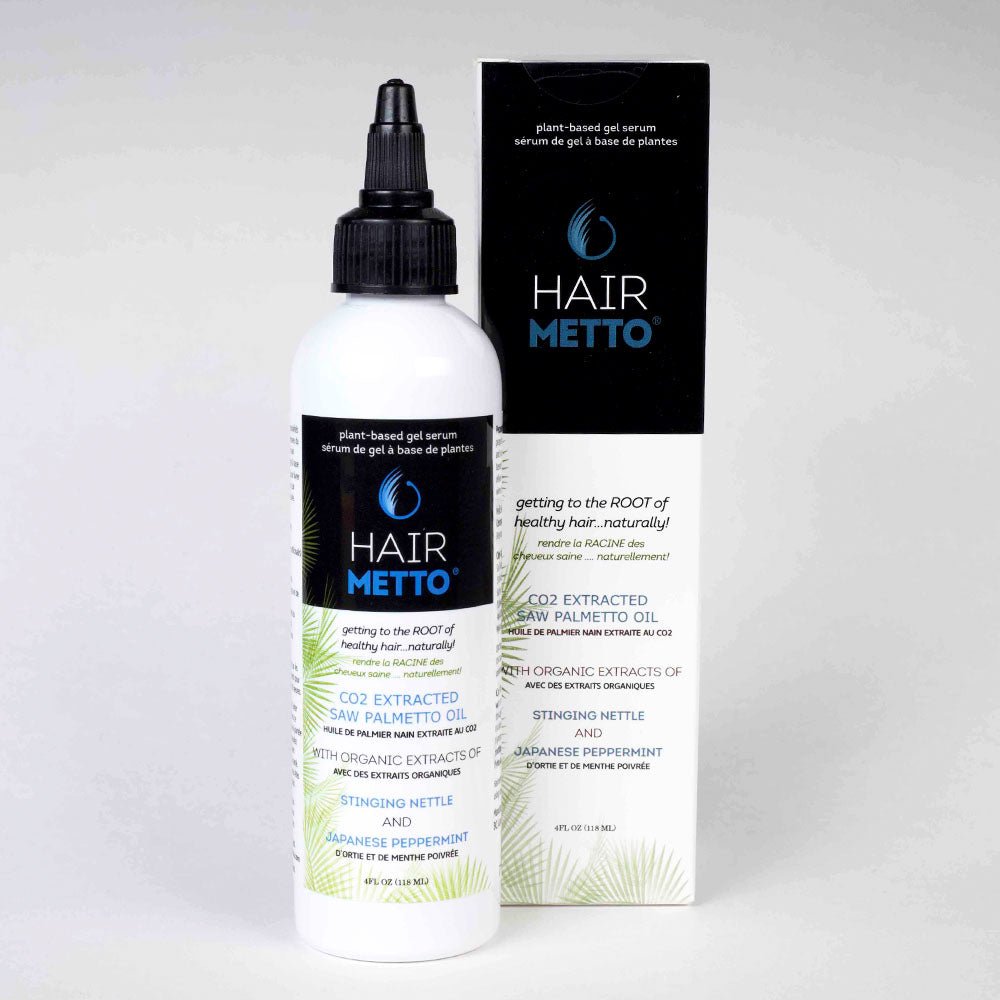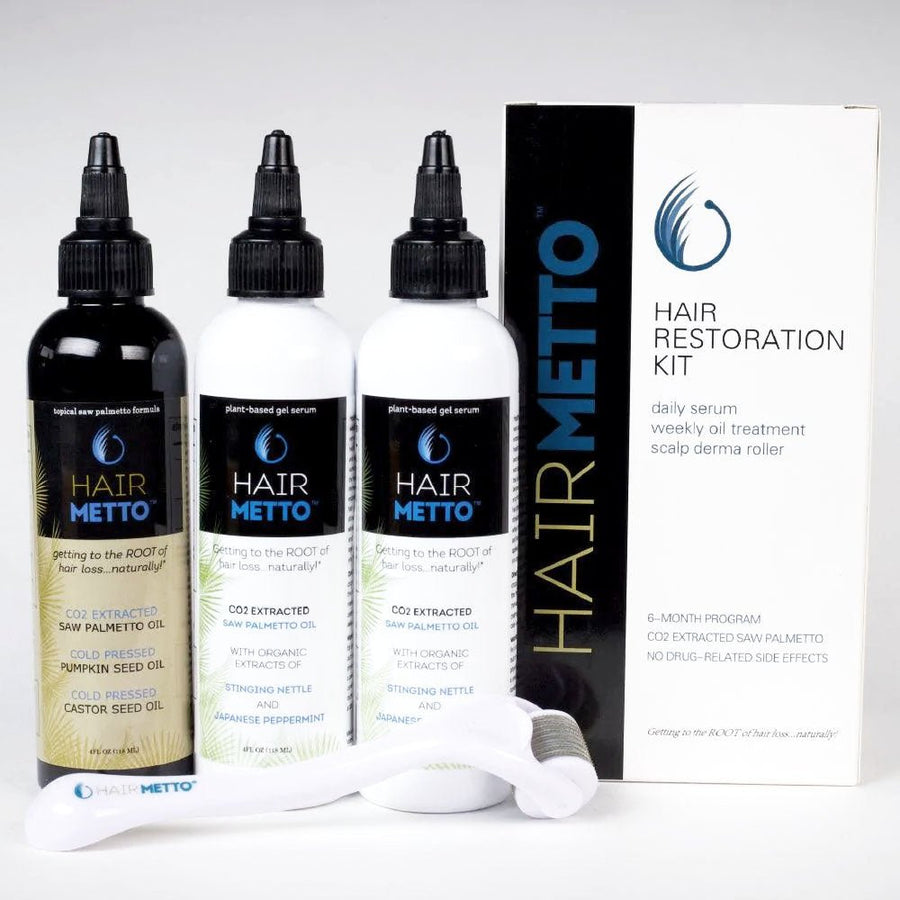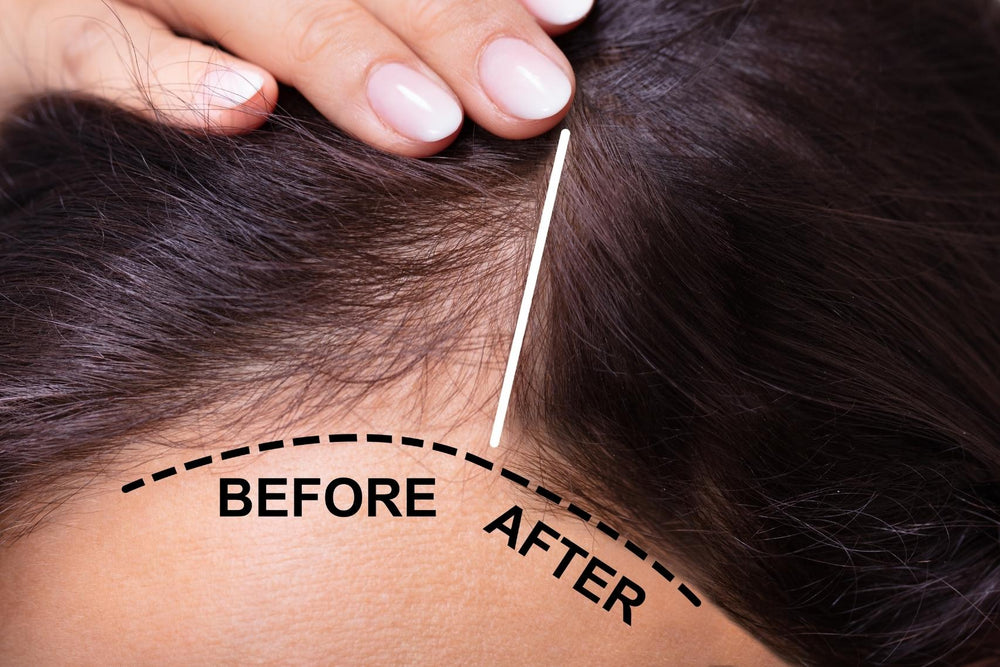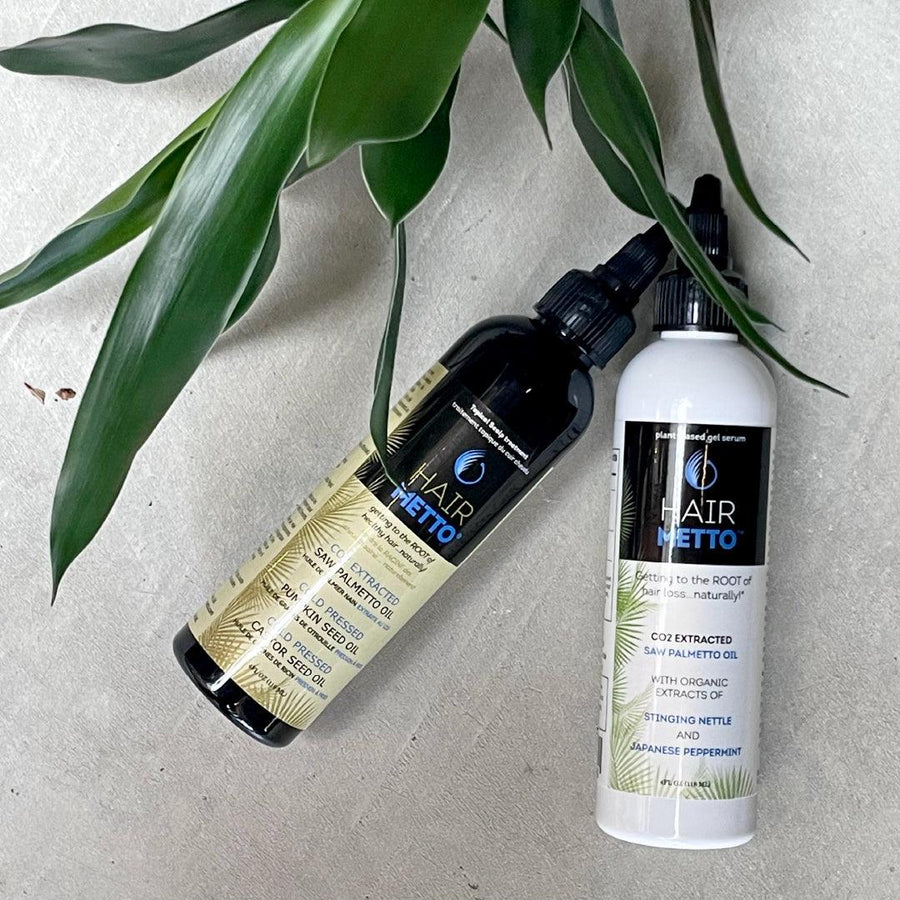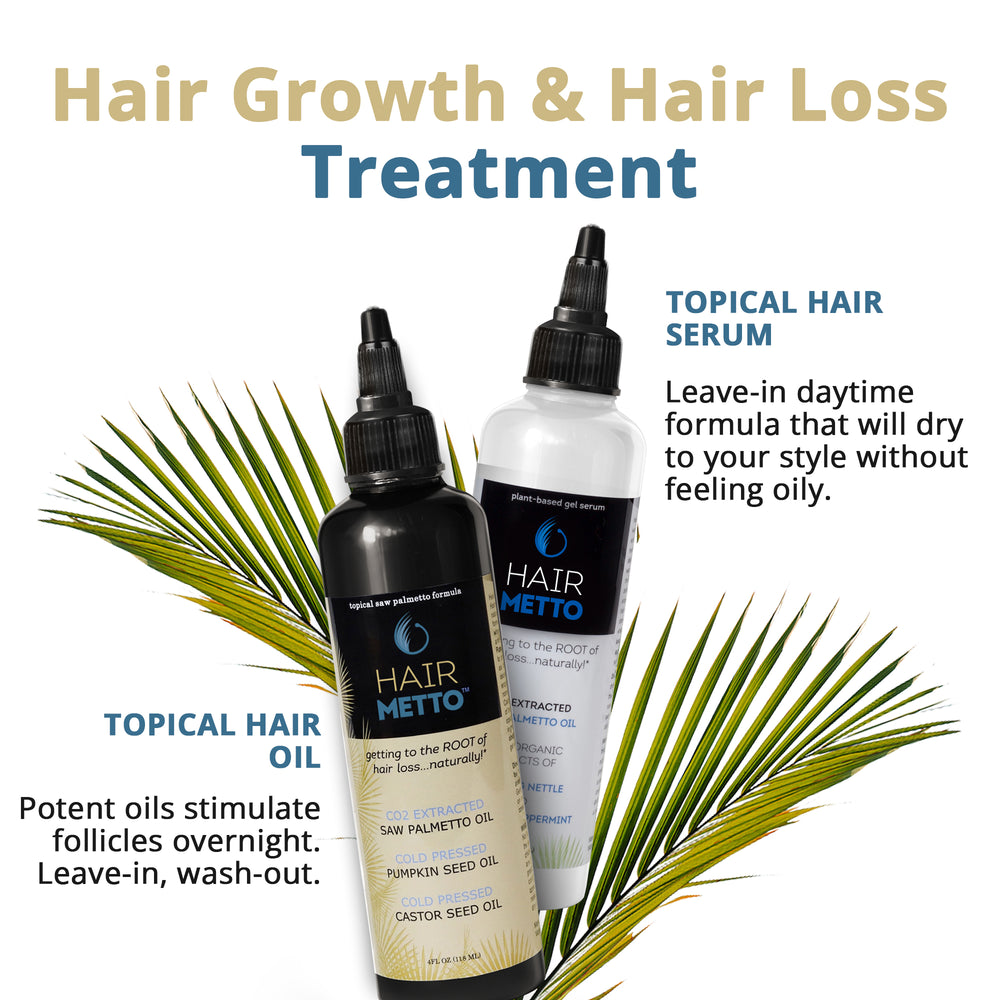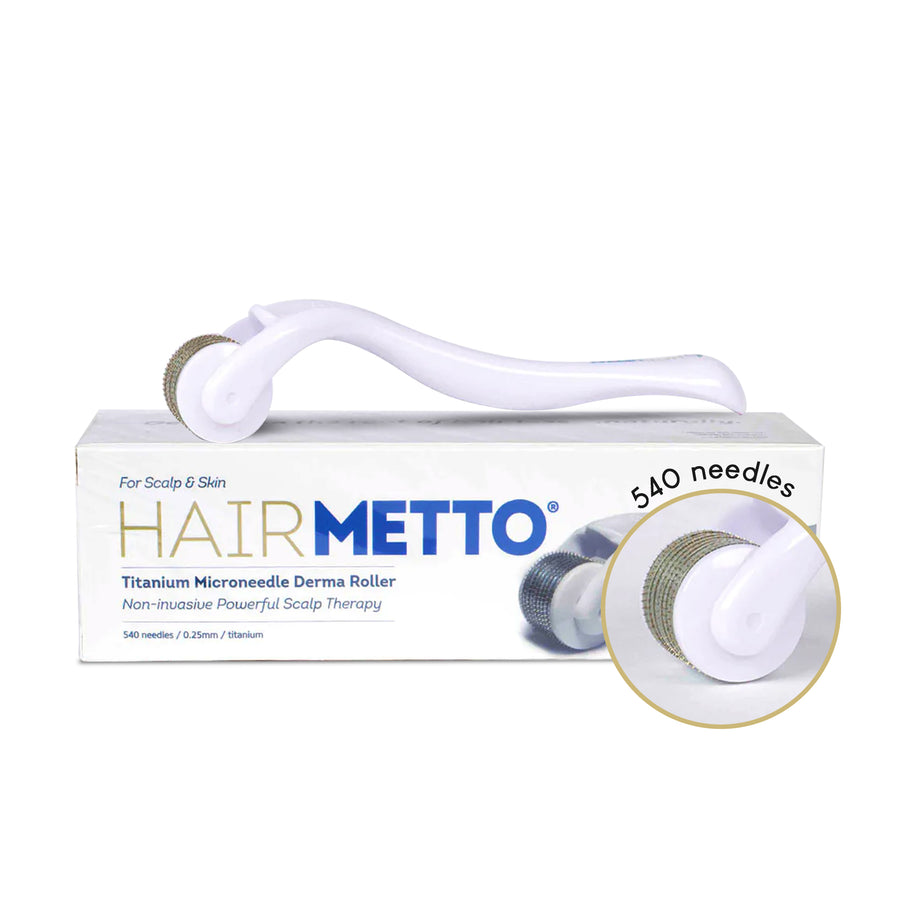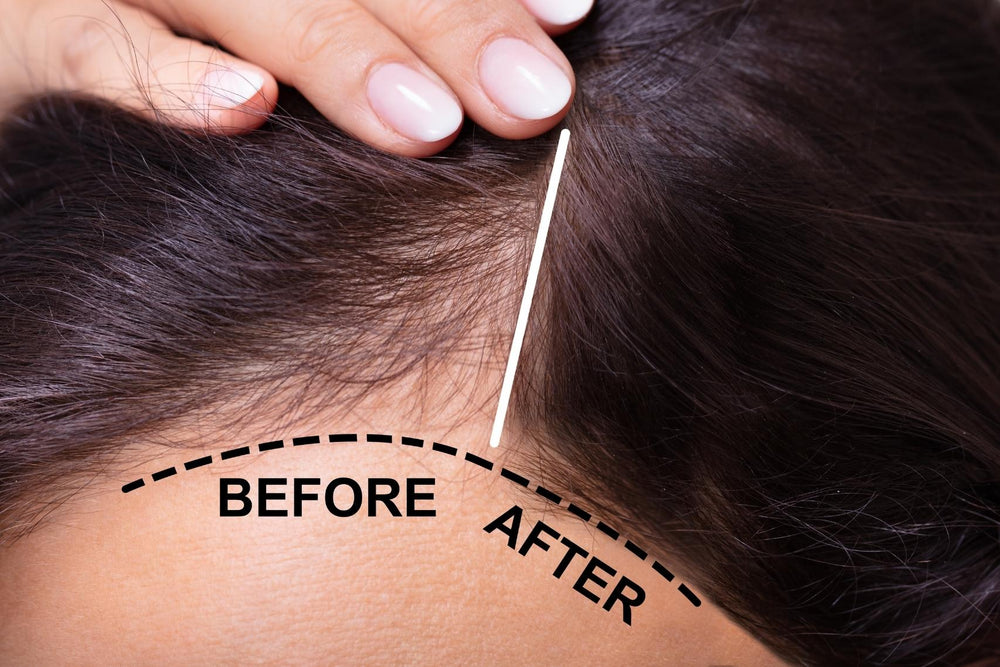Glycation in the Scalp: How It Affects Scalp Inflammation and How to Reduce It
What is Glycation? Glycation is a natural process where sugars react with proteins or fats in our bodies. Being concerned about glycation in the skin is understandable.
When glycation happens, it can cause some problems for our skin. It can make our skin's proteins and fats less healthy, affecting their normal functions. It can also lead to inflammation and damage to our skin cells.
Glycation creates harmful molecules called advanced glycation end products (AGEs). Glycation usually happens slowly and at a low level, but factors like high blood sugar, stress, inflammation, and aging can speed it up. It can make our skin look older, less elastic, and more wrinkle-prone. It can also contribute to skin problems like acne, eczema, or other inflammatory conditions. Inflammatory conditions in the scalp can affect the normal function of hair growth, disrupting its cycle. Glycation in the skin also affects glycation in the scalp, affecting hair follicles.
To reduce glycation, it's essential to control blood sugar, eat a healthy diet with less sugar, use antioxidants, exercise regularly, and avoid smoking and excessive alcohol. However, more research is needed to understand glycation and develop targeted treatments fully.
In this blog, we will understand how glycation is linked to scalp inflammation, how to control it and what topical nutrients are required to treat it.
How Glycation is Linked to Scalp Inflammation
Glycation and the accumulation of advanced glycation end products (AGEs) might be linked to scalp inflammation. Here are a few ways in which glycation could affect scalp inflammation:
- More stress: Glycation and AGEs can cause increased stress in the body. This stress can lead to inflammation and damage to cells, including those on the scalp. Scalp conditions like seborrheic dermatitis or psoriasis might be worsened by this stress caused by glycation and AGE accumulation.
- Weaker skin protection: Glycation and AGEs can disrupt proteins and fats in the skin, including on the scalp. The skin forms a protective barrier that keeps the scalp healthy and blocks harmful things from getting in. This protective barrier is called the stratum corneum. If glycation weakens this barrier, the scalp could be more vulnerable to inflammation from allergens, irritants, or microorganisms.
- Altered immune response: Glycation and AGEs can affect the immune system and how it responds to inflammation. The buildup of AGEs on the scalp might change the immune response, leading to more inflammation. This could be especially relevant for scalp conditions like psoriasis or allergic reactions that involve the immune system.
- Blood vessel problems: Glycation and AGEs can affect how blood vessels work, including the ones that supply blood to the scalp. If glycation causes problems with blood flow or how blood vessels function, it might disrupt the delivery of nutrients and oxygen to the scalp tissues. This disruption could contribute to inflammation and scalp problems.
- It's important to remember that scalp inflammation can have many causes, such as infections, allergies, autoimmune conditions, hormonal imbalances, or skin disorders. Glycation and AGE accumulation are some potential factors that could play a role in scalp inflammation. If you have ongoing scalp inflammation or concerns, it's best to consult a healthcare professional or dermatologist for a proper diagnosis and suitable treatment.
Why Protecting the Scalp Barrier (Stratum Corneum) is Important
The outermost layer of the scalp is called the stratum corneum, which forms a protective barrier. It's made up of dead skin cells and lipids. This barrier has important functions:
- Keeping moisture in: The stratum corneum helps prevent the scalp from losing too much water. It maintains hydration, preventing dryness and keeping the scalp moisturized.
- Shielding from the environment: The protective barrier on the scalp protects it from things like the sun's rays, pollutants, and harsh weather. It reduces the chances of damage from these external factors.
- Blocking microorganisms: The scalp's barrier acts as a physical shield, stopping bacteria, fungi, and viruses from entering deeper layers. It also contains substances that fight against harmful microorganisms.
- Guarding against allergens and irritants: The scalp's barrier stops allergens and irritants from getting through. This helps prevent inflammation and allergic reactions, keeping the scalp healthy.
- Maintaining the right pH: The stratum corneum keeps the scalp slightly acidic, which is important for its health. This acidity helps control harmful microorganisms and supports the proper functioning of enzymes and proteins.
The scalp's protective barrier can be disrupted due to excessive washing, harsh hair products, certain skin conditions, or environmental factors. When the barrier is compromised, it can lead to sensitivity, dryness, irritation, and a higher risk of scalp problems and infections.
5 Ways to Keep your Scalp Barrier Healthy
- Choose gentle hair products: Use gentle shampoos and conditioners on your scalp. Look for products that don't strip away too much of the natural oil from your scalp. Harsh products and chemicals can disrupt the balance and make your scalp dry and irritated.
- Don't wash your scalp too often: Washing your hair daily may sound clean, but it can be bad for your scalp. Washing too often can remove too many natural oils that protect your scalp. Try to find a balance and wash your hair when it feels dirty or greasy, but not more than necessary.
- Protect your scalp from the sun: Too much sun exposure can harm your scalp. Wear a hat or sunscreen on your scalp's exposed parts when you're outside on sunny days. This helps shield your scalp from the harmful effects of the sun's rays.
- Eat a balanced and healthy diet: What you eat can affect the health of your skin, including your scalp. Aim for a balanced diet with plenty of fruits, vegetables, whole grains, and lean proteins. These foods provide the nutrients your scalp needs to stay healthy.
- See a dermatologist if you have ongoing scalp problems: If you're experiencing persistent scalp issues like itching, flaking, or redness, it's a good idea to consult a dermatologist. They are experts who can examine your scalp, diagnose any underlying conditions, and provide appropriate treatment or advice.
By following these tips and caring for your scalp, you can help maintain a healthy scalp barrier. This barrier acts as a shield, keeping harmful substances out and protecting your scalp from damage. Keeping your scalp healthy means you're less likely to experience scalp problems and can enjoy healthier hair overall.
Nutrition to Reduce Glycation and Scalp Inflammation
A healthy diet can help keep the stratum corneum, the outermost layer of the skin, including the scalp, protected and healthy. The stratum corneum plays a crucial role in maintaining the overall health and integrity of the skin barrier, including the scalp. Here's how a balanced diet can contribute to the health of the stratum corneum:
- Nutrient supply: Consuming a nutritious diet that includes a variety of fruits, vegetables, whole grains, lean proteins, and healthy fats provides essential nutrients to your body, including the skin. Nutrients like vitamins (C, E, and A), minerals (like zinc and selenium), and omega-3 fatty acids are essential for maintaining skin health, including the stratum corneum.
- Hydration: Drinking adequate water and consuming hydrating foods can help keep your skin, including the scalp, hydrated. Proper hydration is crucial for the stratum corneum to maintain its moisture balance and function optimally.
- Antioxidant protection: Antioxidants in many fruits and vegetables, such as berries, leafy greens, and citrus fruits, help protect the skin from oxidative stress. Oxidative stress can damage the skin cells, including those in the stratum corneum, and compromise the skin barrier function.
- Healthy fats: Consuming healthy fats from sources like avocados, nuts, and fatty fish provides essential fatty acids that help support the health of the stratum corneum. These fats contribute to the structure and flexibility of the skin barrier, including the scalp.
While diet can support the overall health of the stratum corneum and the skin, it's important to note that it's just one aspect of maintaining skin health. Other factors, such as proper skincare, sun protection, and avoiding harsh chemicals, are important in protecting and maintaining the skin barrier. Nutrition applied directly to the scalp can also reduce scalp inflammation.
12 Topical Nutrients to Reduce Glycation in the Scalp
Several topical nutrients can be applied to the scalp to help protect and nourish it. Here are some examples:
- Vitamin E: Vitamin E is known for its antioxidant properties, which can help protect the scalp from oxidative stress and free radical damage. It also promotes skin hydration and can support overall scalp health. Vitamin E can be found in various scalp oils or applied directly as vitamin E oil.
- Biotin: Biotin, or vitamin B7, is important for healthy hair and scalp. It plays a role in maintaining the integrity of the skin barrier and supports hair growth. Biotin can be found in some hair and scalp care products or as a supplement.
- Zinc: Zinc is a mineral that plays a role in maintaining skin health and supporting the immune system. It is known to have anti-inflammatory properties and can help soothe the scalp. Zinc can be found in certain shampoos or scalp treatments designed to address scalp conditions like dandruff or seborrheic dermatitis.
- Tea tree oil: Tea tree oil has natural antifungal and antibacterial properties, making it beneficial for scalp health. It can help combat dandruff, soothe itching, and maintain a healthy scalp environment. Tea tree oil can be diluted with a carrier oil and applied to the scalp as a treatment.
- Aloe vera: Aloe vera has soothing and hydrating properties, making it a popular ingredient for scalp care. It can help calm inflammation, relieve itching, and moisturize the scalp. Aloe vera gel can be applied directly to the scalp or found in various scalp care products.
- Omega-3 fatty acids: Omega-3 fatty acids, found in fish oil or flaxseed oil, have anti-inflammatory properties and can promote scalp health. They can help reduce scalp inflammation and maintain the integrity of the skin barrier. Omega-3 supplements or scalp oils containing these fatty acids can be used topically to nourish the scalp.
- Lavender: Lavender oil has anti-inflammatory and antimicrobial properties that can help reduce scalp inflammation and soothe irritation. It can be diluted with a carrier oil and gently massaged onto the scalp.
- Rosemary: Rosemary is known for its antioxidant and anti-inflammatory properties. It can stimulate circulation in the scalp, promote hair growth, and provide scalp protection. Rosemary oil can be diluted and applied to the scalp or used in hair care products.
- Castor oil: Castor oil is a thick, sticky oil extracted from the seeds of the castor bean plant (Ricinus communis). It has been used for centuries for its various medicinal and cosmetic properties. Regarding the scalp, castor oil is believed to offer several potential benefits, such as deep hydration to the scalp and prevention of dryness. Castor Oil is rich in Vitamin E, minerals and proteins for nourishing the scalp. The ricinoleic acid in castor oil has anti-inflammatory properties that help calm irritation. Its antimicrobial properties help combat scalp bacterial or fungal infections, contributing to scalp health. To use castor oil on the scalp, it is typically applied as a scalp treatment or hair mask. You can massage a small amount of castor oil directly into the scalp and leave it on for a few hours or overnight before rinsing it. It's important to dilute castor oil with a carrier oil, as it is thick and can be difficult to spread independently.
- Pumpkin seed oil is derived from pumpkin seeds (Cucurbita pepo) and is known for its potential health benefits. Nutrient-rich pumpkin seed oil has several possible benefits, such as reducing scalp inflammation and adding deep hydration. The nutrients of essential fatty acids (EFAs), minerals such as zinc and iron and antioxidants support overall scalp health and promote hair growth. Pumpkin seed oil on the scalp can be applied topically as a hair and scalp treatment. You can massage a small amount of pumpkin seed oil into the scalp and leave it on for a while before rinsing it out. Some individuals incorporate pumpkin seed oil into their hair care products, such as shampoos or conditioners or leave-in scalp treatments.
- Stinging nettle: Stinging Nettle (Urtica dioica) root extract is derived from the roots of the stinging nettle plant. It has been traditionally used in herbal medicine for various purposes, including potential benefits for the scalp and hair. The stinging nettle root extract has anti-inflammatory properties that reduce scalp inflammation, which is beneficial for skin conditions like scalp psoriasis. Stinging nettle root also contain various nutrients, including vitamins A and C, minerals like iron and silica and antioxidants. Stimulating blood circulation in the scalp helps promote healthy hair follicle function and growth. Stinging nettle root extract can be applied topically to the scalp as part of hair care treatments or incorporated into hair products, such as shampoos or conditioners.
- Peppermint essential oil: Peppermint oil is derived from the leaves of the peppermint plant (Mentha piperita) and is known for its refreshing aroma and potential therapeutic properties. Regarding the scalp, peppermint essential oil has been associated with stimulating blood circulation, contributing to hair growth. Its soothing, cooling effect helps alleviate scalp irritation which can be particularly beneficial for individuals with sensitive or inflamed scalps. The high menthol content inhibits the growth of bacteria, fungi and other microorganisms on the scalp, calming scalp inflammation and potentially reducing the risk of scalp infections.
Made-For-You Herbal Scalp Treatments to Reduce Scalp Inflammation and Glycation
Experience the transformative power of HAIRMETTO's natural scalp treatments. With a steadfast commitment to producing top-quality products since 2014, HAIRMETTO harnesses the potency of nature to promote hair growth. We invite you to look at the amazing ingredients for yourself and embark on your hair growth journey with HAIRMETTO today.


